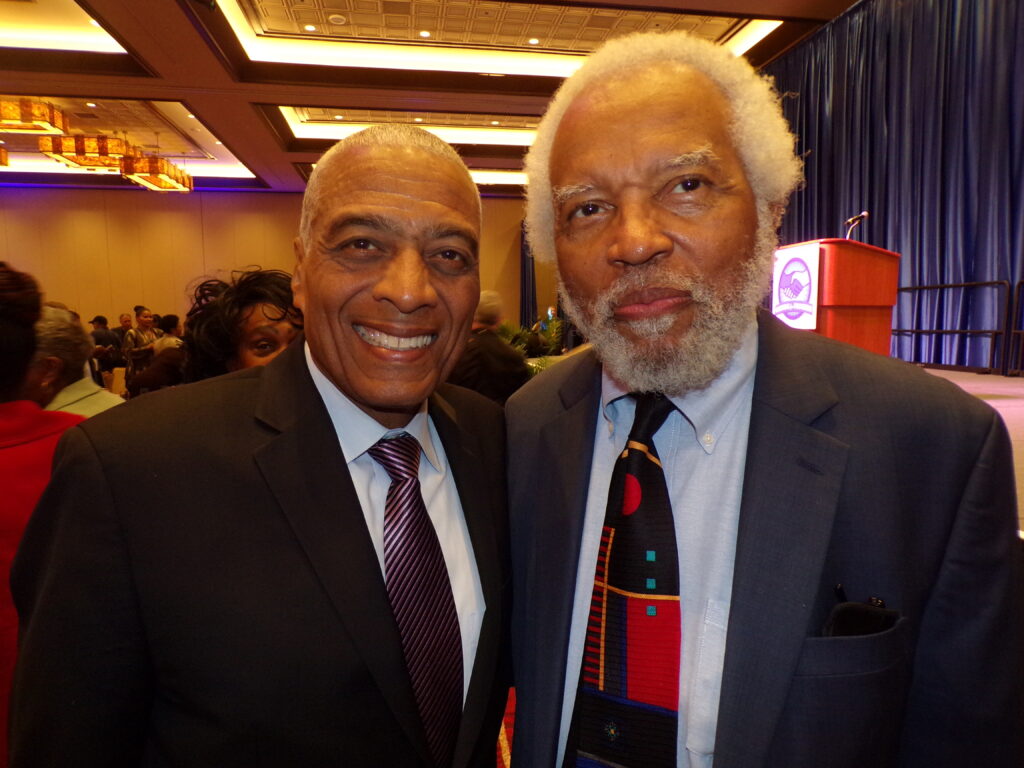NEWARK AND RISEUP.COM TO HOLD VIRTUAL TEACH-IN: “PROTEST TO POWER: THE MAKING OF THE FIRST BLACK MAYOR, KEN GIBSON”

NEWARK AND RISEUP.COM TO HOLD VIRTUAL TEACH-IN:
“PROTEST TO POWER: THE MAKING OF THE FIRST BLACK MAYOR, KEN GIBSON”
ON ZOOM ON TUESDAY, JUNE 16, FROM 7 P.M. TO 9 P.M.
Mayor Baraka, Rev. Jesse Jackson, veteran and present-day activists will join virtual panel;
Newark City Historian Junius Williams and Rutgers Professor Elise Boddie will co-moderate the discussions
Newark, N.J. –June 15, 2020– Mayor Ras J. Baraka, RiseUpNewark.com, the official website and platform for the study of Newark’s movements for black empowerment, and the New Jersey Performing Arts Center (NJPAC) will present a virtual “Teach IN” called, “Protest to Power: the Making of the First Black Mayor, Ken Gibson,” on Tuesday, June 16, from 7 p.m. to 9 p.m. on Zoom. Registration can be done through clicking on the link bit.ly/njpacptp. It will include the Rev. Jesse Jackson, President and CEO of the Rainbow PUSH Coalition, a timeless advocate for the importance of the right to vote.
The two-hour event will be moderated by Junius Williams, Esq., the Official Newark Historian, and Professor Elise Boddie of the Rutgers University Law School. The teach-in will look at the issues, the confrontations, the players, and the coalitions that propelled Ken Gibson into City Hall. The conversation will be among veterans of the 1960-70s who helped make Mayor Gibson possible; and younger advocates, not yet born in 1970 when Gibson was elected the first time, but who have their own ideas about empowerment.
“We must look to the past and study the lessons that history provides,” said Mayor Baraka. “As a young boy, I remember my father, Amiri Baraka, and other people tell stories about how the city had to be transformed by protest, but also by a very important election in 1970. I am mayor today because of those people who ‘walked-the-walk’ as well as ‘talked-the-talk,’ including Jesse Jackson, who came to Newark to help Ken Gibson become mayor. There is a lot to be learned from all the people who brought together the coalition to make the election of a black man as mayor of all the people. But it is also very important to hear what young people have to say about the proper use of this history.”
There will be two panels, side-by-side. One will be a panel of veterans who help Gibson get elected, composed of Fred Means, former Chairman of the Congress of Racial Equality (CORE) and the Organization of Negro Educators (ONE);
Vickie Donaldson, former General Counsel for the Newark Board of Education; and Miguel Rodriguez, affectionately known as “The Don of Puerto Rican Politics in Newark.”
The youth panel will be composed of Zellie Thomas, educator and community organizer with Black Lives Matter, Paterson; A’Dorian Murphy-Thomas, an elected member of the Newark Board of Education; and Beatrice Adams, a doctoral student at Rutgers University.
“The event will address the big question, ‘What made 73 percent of Newark registered voters turn out in 1970 to elect the first Black mayor and how do those lessons translate to the quest for power today?’” said Mr. Williams. “With the support of the three sponsoring organizations, we thought it necessary to organize a virtual event to educate people upon the 50th anniversary of the election of Ken Gibson, not only as the first black mayor of Newark, but of a major Northeastern city. We are grateful for the participation of all the panelists, and Rev. Jackson, himself a veteran of many urban struggles for dignity for black and brown people, and an important advocate for helping all people understand the importance of the vote.”
“I would suggest that the really pressing question is ‘Why should young people see value in the lessons of the past?’ To this question, I would argue that the past is meaningful, especially on the eve of the upcoming election, because it provides a blueprint for how to formulate plans to challenge the ever-changing face of racism and inequality,” said Ms. Adams.
“The older people need to learn from us as well as teach us,” said Mr. Thomas. “We appreciate what the veterans did, but we can’t relive the past, and in many respects, it is our time now. I join this conversation with the understanding that our perceptions and experiences are just as important.”








